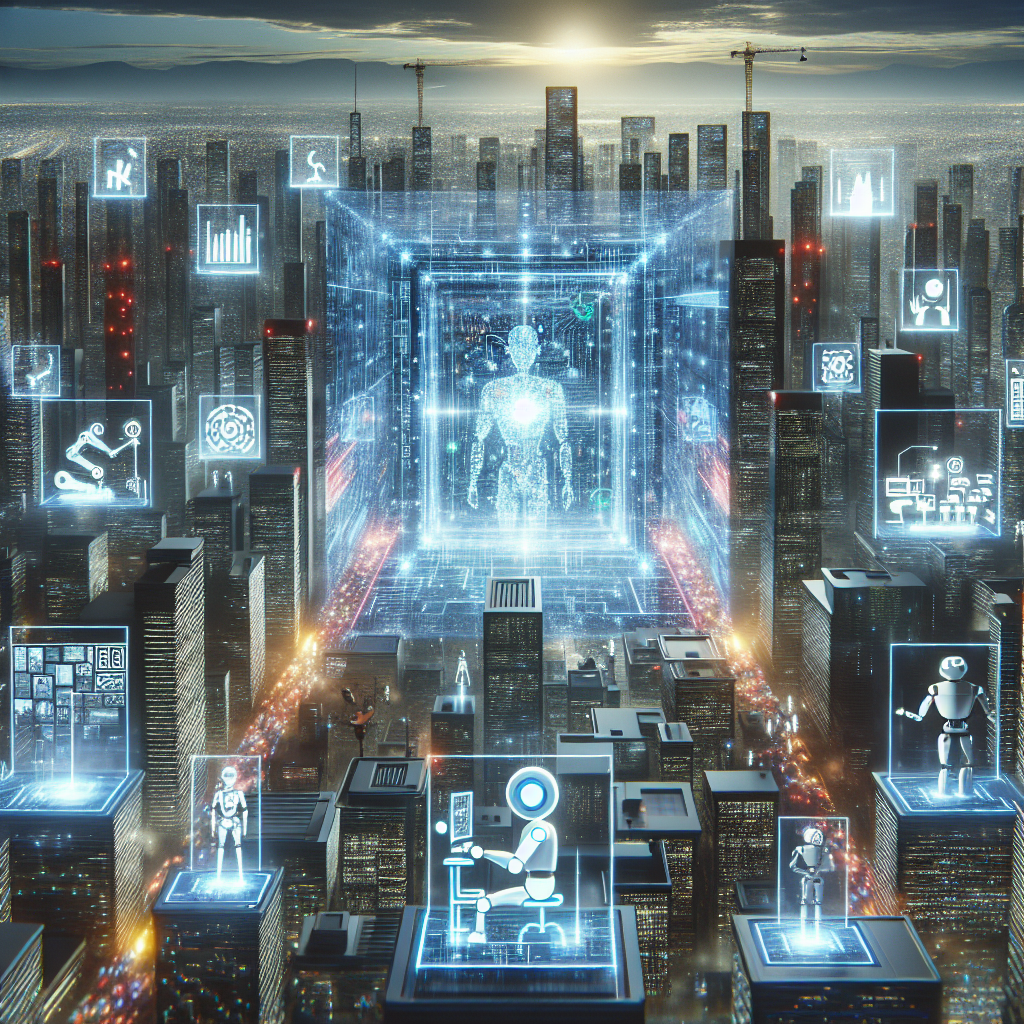The Future of Work: How AGI Will Impact the Job Market
Artificial General Intelligence (AGI) is a term that refers to machines that have the ability to perform any intellectual task that a human being can do. This technology has the potential to revolutionize the way we work, and it is likely to have a significant impact on the job market in the coming years.
In this article, we will explore how AGI is expected to change the nature of work, the jobs that are likely to be affected, and how employees can prepare for the changes that are on the horizon.
The Rise of Artificial General Intelligence
AGI is the next step in the evolution of artificial intelligence (AI). While most AI systems are designed for specific tasks, such as playing chess or recognizing speech, AGI is intended to be more versatile and capable of performing a wide range of tasks. This technology has the potential to automate many jobs that are currently performed by humans, leading to significant changes in the job market.
One of the key features of AGI is its ability to learn and adapt to new tasks without being explicitly programmed to do so. This means that AGI systems can continuously improve their performance and take on new challenges as they arise. As a result, these machines have the potential to outperform humans in many areas, leading to increased automation of jobs across various industries.
The Impact on the Job Market
The rise of AGI is expected to have a profound impact on the job market, with some jobs becoming obsolete and others being created in new industries. According to a report by McKinsey, up to 800 million jobs worldwide could be automated by 2030, with the most vulnerable sectors including manufacturing, transportation, and retail.
Jobs that involve repetitive tasks or routine decision-making are likely to be the most at risk of automation. For example, roles in data entry, telemarketing, and assembly line work are all susceptible to being taken over by AGI systems. On the other hand, jobs that require creativity, emotional intelligence, and complex problem-solving skills are expected to be less affected by automation.
In addition to job displacement, the rise of AGI is also likely to lead to changes in the way we work. For example, remote work is expected to become more common as AGI systems enable employees to collaborate and communicate effectively from anywhere in the world. This could have a significant impact on urbanization patterns and the way we organize our cities.
Preparing for the Future
As AGI technology continues to develop, it is important for employees to prepare for the changes that are on the horizon. One of the key strategies for staying relevant in the job market is to focus on developing skills that are difficult for machines to replicate. This includes skills such as creativity, critical thinking, and emotional intelligence, which are likely to be in high demand in the future.
In addition to developing new skills, employees can also prepare for the rise of AGI by staying informed about the latest developments in technology and how they are likely to impact their industry. This can help employees anticipate changes in the job market and make informed decisions about their career paths.
FAQs
Q: Will AGI replace all jobs?
A: While AGI has the potential to automate many tasks that are currently performed by humans, it is unlikely to replace all jobs. Some roles, such as those that require creativity, emotional intelligence, and complex problem-solving skills, are expected to be less affected by automation.
Q: How can employees prepare for the rise of AGI?
A: Employees can prepare for the rise of AGI by developing skills that are difficult for machines to replicate, such as creativity, critical thinking, and emotional intelligence. Staying informed about the latest developments in technology and how they are likely to impact their industry can also help employees anticipate changes in the job market.
Q: Will remote work become more common with the rise of AGI?
A: Yes, remote work is expected to become more common as AGI systems enable employees to collaborate and communicate effectively from anywhere in the world. This could have a significant impact on urbanization patterns and the way we organize our cities.
In conclusion, the rise of AGI is likely to have a significant impact on the job market in the coming years. While some jobs may be automated, new opportunities are likely to be created in emerging industries. By developing new skills and staying informed about the latest technological developments, employees can prepare for the changes that are on the horizon and stay relevant in the future of work.

